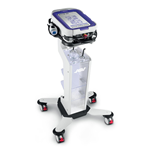Dr Helen Chau investigated early intervention in pre-school children with autism or developmental delay as part of her PhD research at RMIT, comparing the effectiveness of home-based, one-on-one therapy sessions with more traditional centre-based early intervention approaches.
Examining the impact of generic centre-based early intervention programs, autism-specific centre-based programs and home-based applied behaviour analysis (ABA) programs, Dr Chau found most behaviour improvement occurred in the first six months, irrespective of the early intervention approach taken.
"Children who attended either home-based or centre-based early intervention for six months demonstrated a larger reduction of autism-related behaviours than in the following six months," she said.
"The different approaches both had benefits - centre-based programs tended to improve social competence, while home-based programs improved self-help skills.
"While more hours of intervention per week was generally associated with more effective developmental outcomes, it was not clear from my research that the home-based programs led to substantially better outcomes for children with autism, compared with centre-based intervention."
Dr Chau's PhD research in the School of Health Sciences included an initial survey of 50 families and 20 early intervention centres over two years, a six-year follow-up study of eight families and 20 early intervention centres, and an in-depth study that followed 12 children with autism in early intervention for a year.
"The age that children started intervention is important, with my research showing a clear association between age-of-start and developmental gains.
The longitudinal study identified a trend for higher gains in IQ in younger children and higher gains in interpersonal relationships and language for older children," she said.
Home-based, applied behaviour analysis (ABA) programs involve 40 hours a week of one-on-one therapy. Based on the Lovaas study at UCLA for young children with autism, the approach was introduced from the United States to Melbourne in the mid 1990s.
The research found that ABA programs did improve behaviour but there were critical time periods during the intervention - 7 - 12 months and 19 - 24 months - in which extra hours did not produce more effective developmental outcomes.
A senior psychologist in Developmental Medicine at Monash Children's Hospital, Dr Chau said her findings deepened our understanding of what may work best for children with autism, but more research was needed.
"There were times I felt so excited by the results that I gathered and there were times that I wanted to give up as it took up so much effort and time," she said.
"However, my two supervisors, Adjunct Professor Amanda Richdale and Associate Professor Susana Gavidia-Payne, as well as Psychology's Associate Professor John Reece, were very supportive and they have been on my side to walk through the journey with me, always giving me encouragement to do my best, and not to just get through the study."
Dr Chau will be celebrating her achievements with more than 6,300 other graduates at RMIT's spectacular Graduation Ceremony at Etihad Stadium on Wednesday, 14 December.













-160x160-state_article-rel-cat.png)









